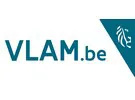The United Kingdom left the European Union on January 1, 2021, as a result of which European exporters are faced with formalities, inspections, long waiting times at the border and paperwork. To support Belgian export companies and producers, VLAM has appointed Ward Verberck as Brexit supervisor. With more than 20 years of experience as a buyer of fruit and vegetables and responsible for ultra fresh at Makro / METRO and a Belgian import company, Ward is no stranger to the fruit and vegetable sector. "I know how the sector works and my goal is to advise and assist companies that need help."

“I've already gotten a lot of phone calls,” says Ward. “Especially in the beginning from companies from the floriculture sector. Since 1 January, these companies have been required to provide a phytosanitary certificate and in some cases to supply pre-export certificates, which results in a lot of extra work and time investment, complicates export and makes it expensive. For the fresh produce sector, this obligation applies from 1 April. The fruit and vegetable trade is in itself a very flexible trade. An extra pallet when things are sold well is no longer an option. All goods must be registered in advance and that creates administrative hassle.”
It is important that companies are well prepared, but according to Ward there is room for improvement. “The large companies that have a lot of experience in exporting to distant countries are generally well organised and employ people to do so. However, there are a number of small and medium-sized enterprises that are not well prepared and are suddenly confronted with all kinds of formalities. I understand that many companies are busy and hard at work with day-to-day trading, but preparing for April 1 is something that certainly deserves attention,” explains Verberck.
Opportunities
“In addition to supporting and guiding Belgian companies, I will also look for solutions to structural problems in the second phase. What do many companies encounter? And how can we solve or improve this? I will not be doing this alone, but working together with the various sectors and interest groups,” says Ward. “Third, we are going to look at the opportunities. The UK is an important trading partner and the country is not self-sufficient, so they will continue to need us. That is why we have to find out where our strengths lie and how we can best respond to them. ”
"Prepare yourself"
Prepare yourself! It has been said by many people, but even Ward cannot emphasize the importance of good preparation enough. “In the fresh produce sector, a lot of seasonal products are used. Think about that and don't wait until you want to export these products, by then it will be too late. Make sure you have the necessary certificates and licenses. There is enough information available and companies can call me. It takes some effort and time, but you have to have it. Make sure you don't lag behind. ”
Re-export
“Products that deserve extra attention are the re-export products as a service to the customer in off-season periods. It is important to coordinate this with your customs agent in order to avoid additional import duties for your customer," Ward says. "To avoid surprises like this, it is important that companies make a good calculation and map out what steps they have to take. The Euro has also disappeared, so keep that in mind. ”
“Not only are mistakes made on the European side, but I hear that there are many difficulties on the British side as well. Just as there are companies here that are not aware of the regulations, the reverse is also true,” says Ward. “I also see that a few companies are dropping out. These are often occasional exporters who do not feel like going through the hassle and think it has become too expensive. I will say it one last time for companies that have such questions. Inform yourself! Prepare yourself! There are plenty of companies or agencies that can help. I am convinced that soon, if we are just doing this, there will be great opportunities. ”
For more information:
Ward Verberck
VLAM 
+32(0)473 269 472
Ward.verberck@vlam.be
